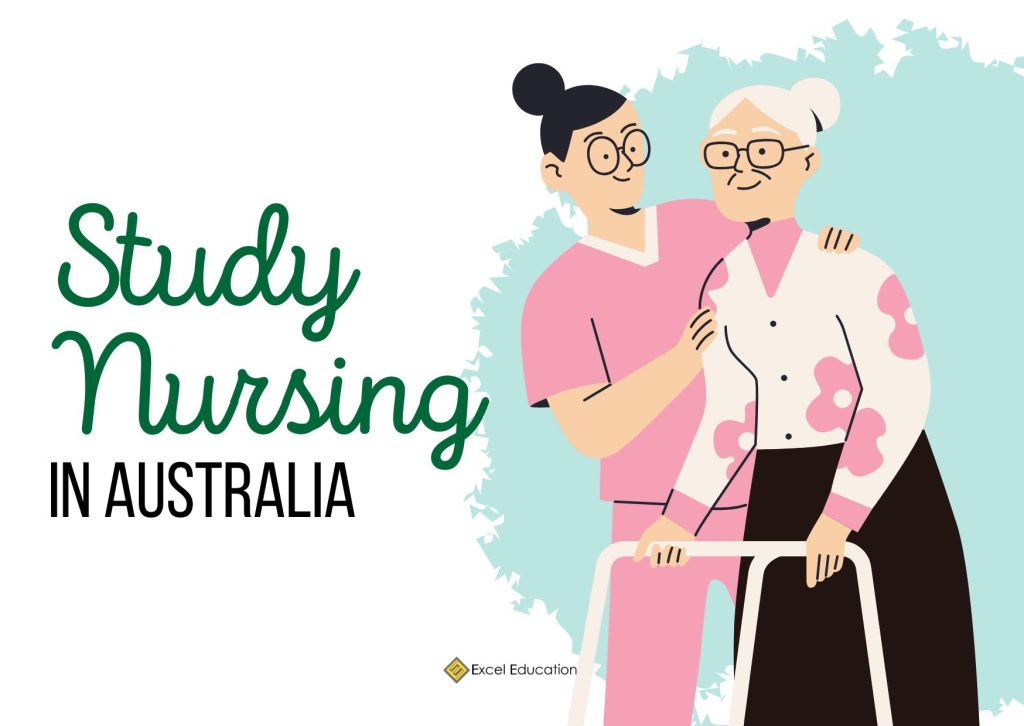
What is Nursing?
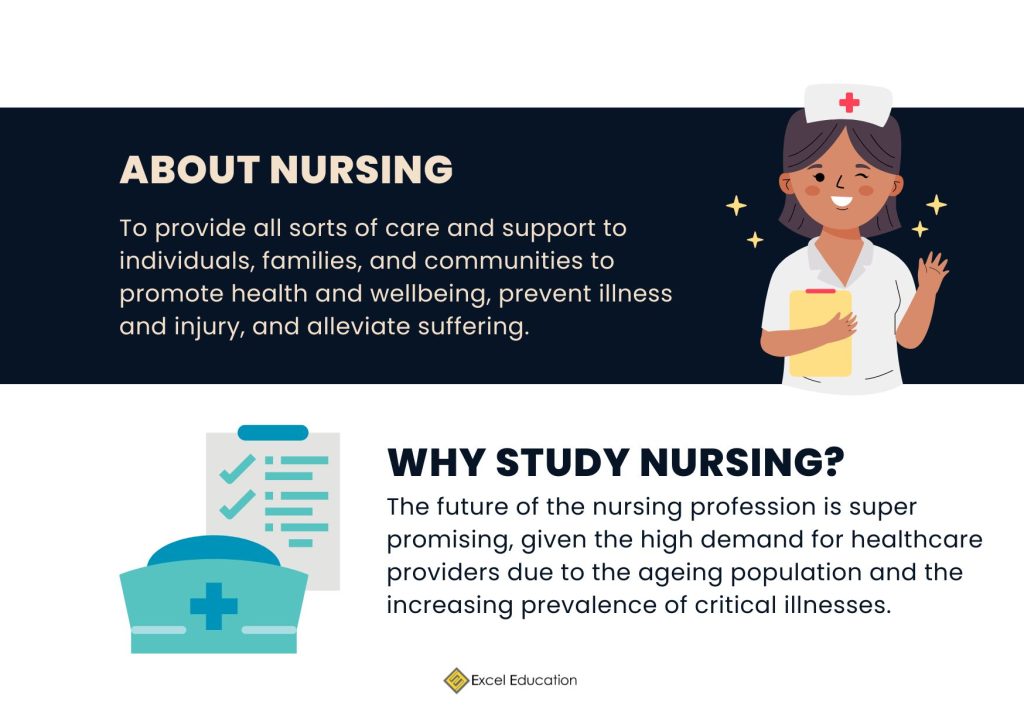
In old age, Nurses are always perceived as a mere sidekick to doctors, just like Robin and Batman. However, this is now a thing of the past! (Bye bye to all these traditional perceptions.) Nurses are no longer considered medical assistants but rather medical professionals who play a very important role in the healthcare industry.
There may be a lot of different versions for Nurses, but the main one would be providing all sorts of care and support to individuals, families, and communities to promote health and wellbeing, prevent illness and injury, and alleviate suffering. To sum up the above, they are basically the glue, holding hands that hold the hands of patients on the road to recovery.
The responsibilities of a Nurse are far more diverse than we can imagine. This ranges from the complex task of making acute treatment decisions to simpler programmes such as providing vaccinations in schools. But what unites every Nurse is the skill and drive that it takes to be a Nurse – providing care and support to those in need.
In Australia, the future of the Nursing profession is super, super promising, given the high demand for healthcare providers due to the ageing population and the increasing prevalence of critical illnesses.
Nurses are to play an increasingly significant role in the healthcare industry and also, our community. This profession is expected to further evolve to meet the changing healthcare needs of the population. The Nursing profession offers a rewarding yet fulfilling career path to those who are interested.
If you have an interest to study nursing in Australia, reading this article might help you with a general understanding on the skills, requirements and pathways.
Types of Nursing to study in Australia
To give you a better understanding of different Nursing specialties, we put together a list to help you on which types of Nursing you can consider:
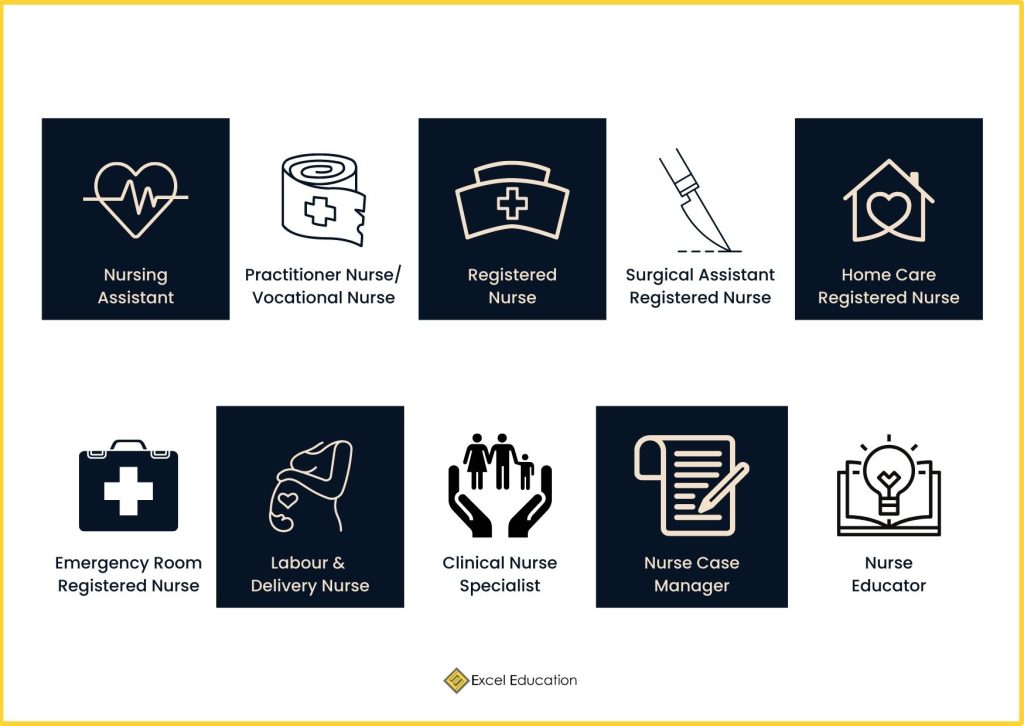
Types of Nursing | Specialisation |
Nursing Assistant | Monitor vital signs, bathe and dress patients while assisting them with their repositioning and walking |
Practitioner Nurse/ Vocational Nurse | Change bandages, monitor blood pressure, collect blood and urine samples, and address patient concerns to Registered Nurses and doctors |
Registered Nurse | Assess patients, administer medications and treatments, assist in diagnostic testing, and provide emotional support and health education to patients and their families |
Surgical Assistant Registered Nurse | Assist surgeons during procedures and care for patients in every stage of surgery (pre and post) |
Home Care Registered Nurse | Prepare equipment, change dressings, administer medication, and monitor conditions for patients at home |
Emergency Room Registered Nurse | Perform emergency care methodology such as performing triage upon patient arrival, determine the order of treatment, conducting examinations, recording patient histories, monitor patient progress, and consulting with supervising doctors |
Labour and Delivery Nurse | Assist mothers through labour and delivery, perform medical tests on newborn babies, and help parents decide a plan of care to assist in the post-delivery care of both mother and child |
Clinical Nurse Specialist | Improve patient care plans by working with social workers, doctors, Nurse specialists, and pharmacists, and occasionally providing bedside care to patients |
Nurse Case Manager | Work with patients, medical staff, and insurance providers to find the most effective care plan, monitor progress, evaluate care, and suggest alternative treatments for patients |
Nurse Educator | Develop a continuing education programme, facilitate training, provide educational resources to staff and design educational initiatives to improve patient care |
For more information on the details provided above, do not hesitate to contact us now!
Skills Required for Nursing
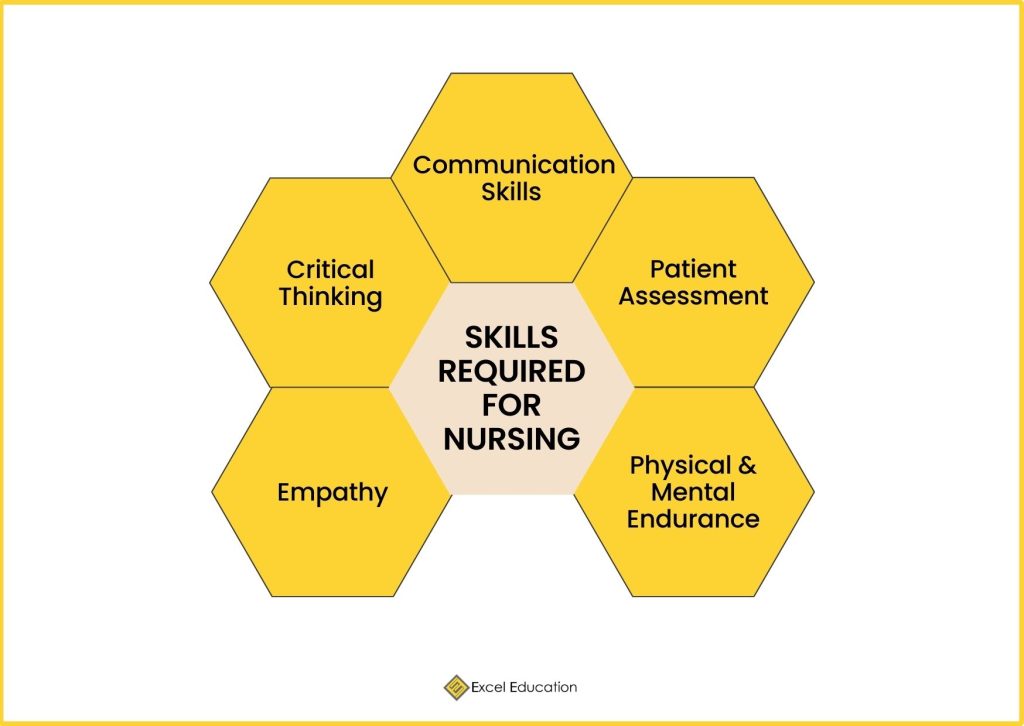
To study Nursing, one need to have the following skills:
1. Communication skills
Effective communication skills are much needed for this role as it involves communicating with patients, their families, doctors, and other healthcare professionals. As a Nurse, you are the bridge between all these parties, and you need to know how to communicate on the same page as the audience and, at the same time, communicate compassionately.
2. Critical Thinking
Nurses must have strong critical thinking skills to quickly assess and analyse complex issues and make the right decisions about patient care. They must be able to think on their feet, keep adapting to changes in patient conditions, and determine the best solutions for their patients.
3. Patient assessment
To offer the best possible care for patients, a Nurse must have a solid understanding of medical procedures and equipment. Nurses need to be knowledgeable about the different medical conditions and treatments, as well as use the right tools during the patient’s recovery process.
4. Empathy
Oftentimes, Nurses will find themselves in a situation where they are bombarded by the negative emotions of the patients or their family members. That said, Nurses need to demonstrate a high level of empathy and be considerate towards them without losing their cool. When one keeps their cool, one can alleviate the situation and calm everyone down.
5. Physical & mental endurance
Nurses often work long shifts, performing strenuous tasks while remaining alert and attentive to patient needs around the clock. This job nature can take a toll on a Nurse’s mental well-being. Hence, Nurses need to maintain a work-life balance to ensure they can provide the best care solution to the patients.
Are you eligible to study Nursing in Australia?
Following are the general entry requirements to study Nursing:
Academic entry | Minimum Score |
STPM | Aggregate score of 4 |
Matriculation | Overall score of 1.5 |
A-Levels | 5 |
UEC | 5 |
IB Diploma | 24 |
Australian Matriculation (ATAR) | 50 |
Canadian Pre-University (CPU) | 60 |
Note: Universities may have different requirements. To learn more, get in touch with us!
Entry Level | Minimum Score |
IELTS | 70 |
TOEFL | 94 |
Pearson Test of English (PTE) | 65 |
Note: Universities may have different English Language requirements. To learn more, get in touch with us!
Pathway to study Nursing in Australia
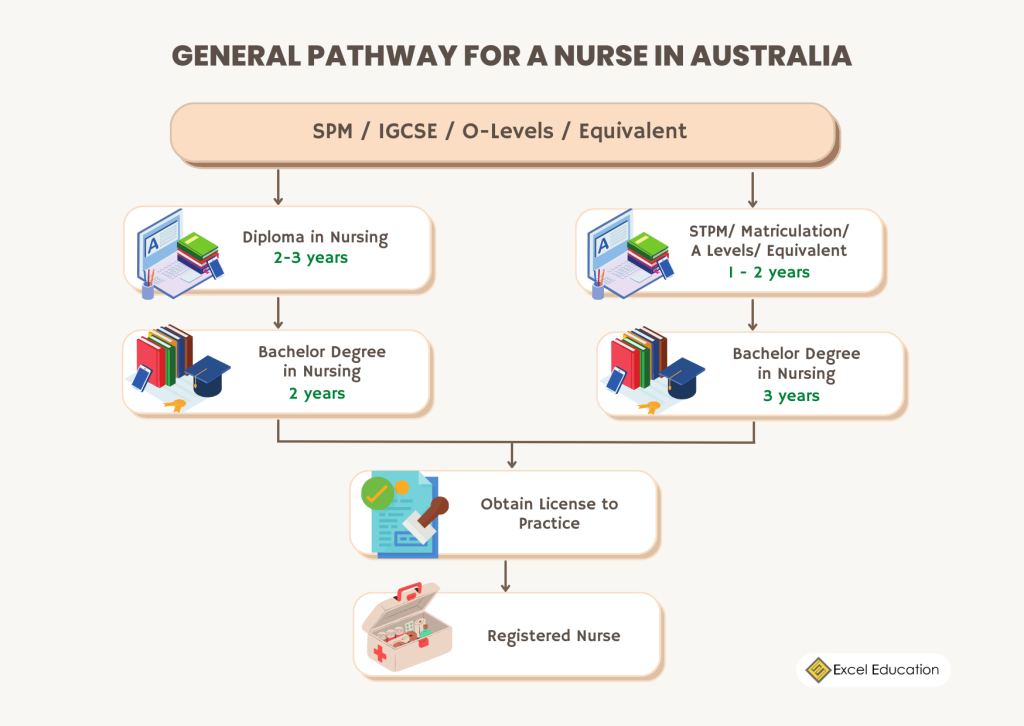
The initial step to study Nursing in Australia is to pursue a profession as a Nurse in Australia, after completion of SPM or equivalent examination, is to complete a pre-university course or a Diploma in Nursing which you can opt to take in institutions located in Australia such as the Diploma of Nursing at TAFE New South Wales. If you want further information, you can get in touch with us!
After completion of relevant pre-university courses, you can begin your journey study Nursing in Australia by pursuing a Bachelor Degree in Nursing, which typically takes 3 years to study at an Australian higher education institution of your choice. If you do a Diploma in Nursing programme, you will only need 2 years to do a bachelor degree.
Then, you should apply to the Australian Health Practitioner Registration Authority (AHPRA) and Nursing and Midwifery Board of Australia (NMBA) to practise as a Nurse in Australia.
For institutions which are accredited by the NMBA under the AHPRA, the institution would typically register it for you or grant you eligibility to be registered.
There is a need for more registered nurses in clinical areas to support the health system which explains why nursing is increasingly becoming the course of choice in Australia. Priority is provided for Registered Nurses to apply for a work visa and a skilled visa that provides a pathway to permanent residency. Nurses are generally on the medium and long-term strategic skills list (MLTSSL). Meaning to say, that opens more possibilities for Permanent Residence (PR) visas you may possibly apply for.
Nursing professions, such as Aged Care Nurse, Critical Care Nurse, and Emergency Nurse, fall under MLTSSL, offering temporary visa such as subclass 485 (Temporary Graduate) and permanent visas such as subclass 189 (Skilled Independent) and subclass 190 (Skilled Nominated). The choice of visa may vary from occupation, eligibility, regional preference and wish to acquire permanent residence.
The average annual salary for a Registered Nurse is from AU$85,000 to AU$90,000 in Australia. This can be different depending on which state you plan to work in.
Top Universities to Study Nursing in Australia
Following are the universities recommendation to study Nursing in Australia which you can consider to pursue.
1. University of Sydney
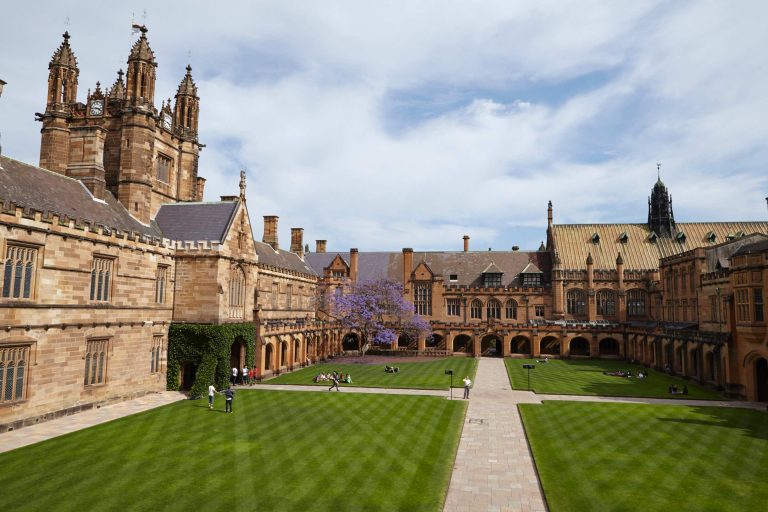
The University of Sydney is ranked in the top 20 universities in the world according to the QS World University Ranking 2024, known for their excellence in research and their education approaches. They are committed to their goal of unity where the community collaborates with each other to provide value to the world.
Known for ranking as the first in Australia for the Nursing subject, the Bachelor of Nursing at the University of Sydney offers students modules which aim to develop their understanding of the professional nursing practice. The programme is offered at two of their campuses located at Camperdown and Darlington.
Programme Offered | Bachelor of Nursing (Advanced Studies) |
Duration | 3 Years |
Intake | February |
Indicative Fees (2024) | AU$ 136,500 |
Contact us right now for a free consultation if you’d like more details about the costs, the format of the programme, and the entry requirements!
2. University of Technology Sydney

University of Technology Sydney (UTS) is a leading public research university located in Sydney, New South Wales, Australia. UTS is a founding member of the Australian Technology Network (ATN), a leading member of Universities Australia (UA), and a member of the Worldwide Universities Network (WUN).
The Bachelor of Nursing course at UTS prepares students for the exciting and challenging role of the Registered Nurse. Students are given theoretical and clinical nursing content, which comprehensively covers a range of subject matters in nursing, enabling them to prepare for the provision of safe, effective, and compassionate nursing care. Graduates come out well-prepared for clinical practice and have always remained in great demand for employment in different healthcare setups, not only in Australia but internationally.
Programme Offered | Bachelor of Nursing |
Duration | 3 Years |
Intake | February |
Indicative Fees (2024) | AU$ 134,784 |
Contact us right now for a free consultation if you’d like more details about the costs, the format of the programme, and the entry requirements!
3. Griffith University
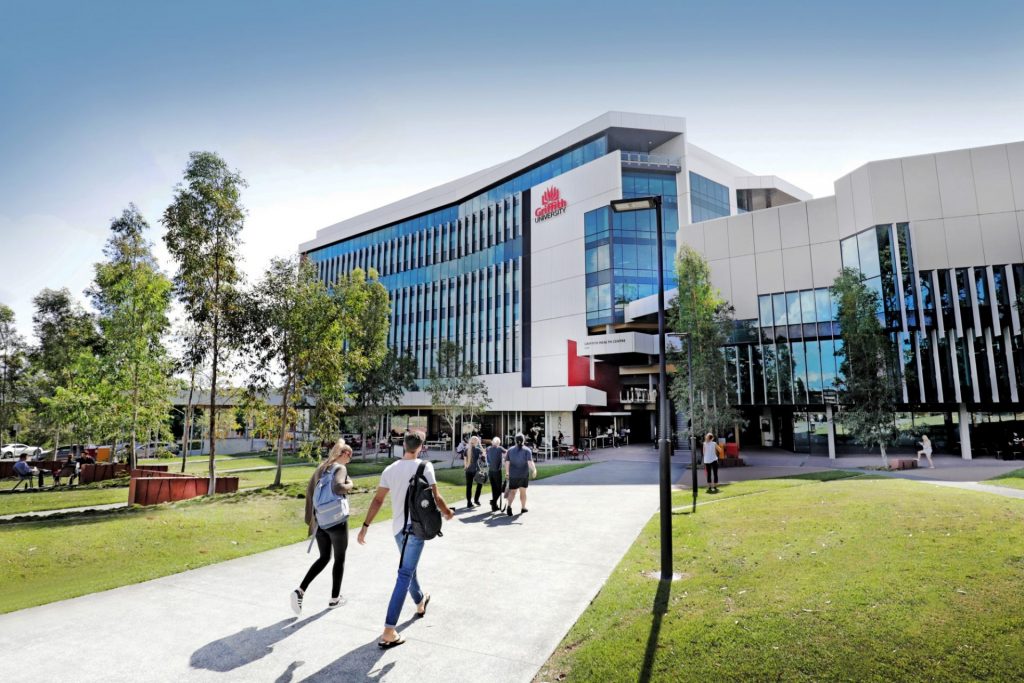
Griffith University is a leading higher education institution devoted to fostering remarkable graduates through exceptional research and excellent teaching. Griffith is consistently ranked among the top 2 percent of universities worldwide, holding core principles covering excellence, ethical behaviour, and engagement.
Enrolling into the Nursing programme at Griffith University will grant you the chance to develop your skills as a Nurse through clinical placements located in rural, remote, and overseas placements. You will also experience work-integrated learning as preparation for a profession in the healthcare sector as well as over 800 hours of clinical placements.
Programme Offered | Bachelor of Nursing |
Duration | 3 Years |
Intake | March, July |
Indicative Fees (2024) | AU$ 114,000 |
Contact us right now for a free consultation if you’d like more details about the costs, the format of the programme, and the entry requirements!
4. Western Sydney University

The Western Sydney University was initiated in the year 1989 under the name the University of Western Sydney, is committed to being a higher education institution which is distinctively student-centred with life-enriching educational opportunities. Students will be entitled to student support and regular vetted curriculums.
The School of Nursing and Midwifery at Western Sydney University vows to educate future Nurses to be fully equipped to support the world’s communities through quality care and safety. The Bachelor of Nursing at Western Sydney University is offered across four campuses, namely, Campbelltown, Hawkesbury, Parramatta South and Liverpool City.
Programme Offered | Bachelor of Nursing |
Duration | 3 years |
Intake | March |
Indicative Fees (2024) | AU$ 98,784 |
Contact us right now for a free consultation if you’d like more details about the costs, the format of the programme, and the entry requirements!
5. Australian Catholic University

Australian Catholic University (ACU) is a public university in Australia that was established in 1991. It has several campuses in Australia and a campus in Rome. The University is a member of the publicly funded national system of Australian universities, the Association of Commonwealth Universities and the International Federation of Catholic Universities.
ACU graduate nurses are recognisable with their clinical competencies, skill in decision-making, and above all, compassion. With networks of multiple hospitals and many healthcare partners, their students will have access to a range of industry placements covering top quality and many career choices. For students looking for overseas experience, ACU assists with care facilities in various developed and developing countries of the world.
Programme Offered | Bachelor of Nursing |
Duration | 3 years |
Intake | February |
Indicative Fees (2024) | AU$ 94,896 |
Contact us right now for a free consultation if you’d like more details about the costs, the format of the programme, and the entry requirements!
For more information regarding the university, programs offered, entry requirements and fees, contact Excel Education.
Recommended Articles to Read
About The Author

Eric Chooi
A passionate and inquisitive writer, always looking for new ways to write. If you don’t see him writing, maybe he is hunting for some good food!

